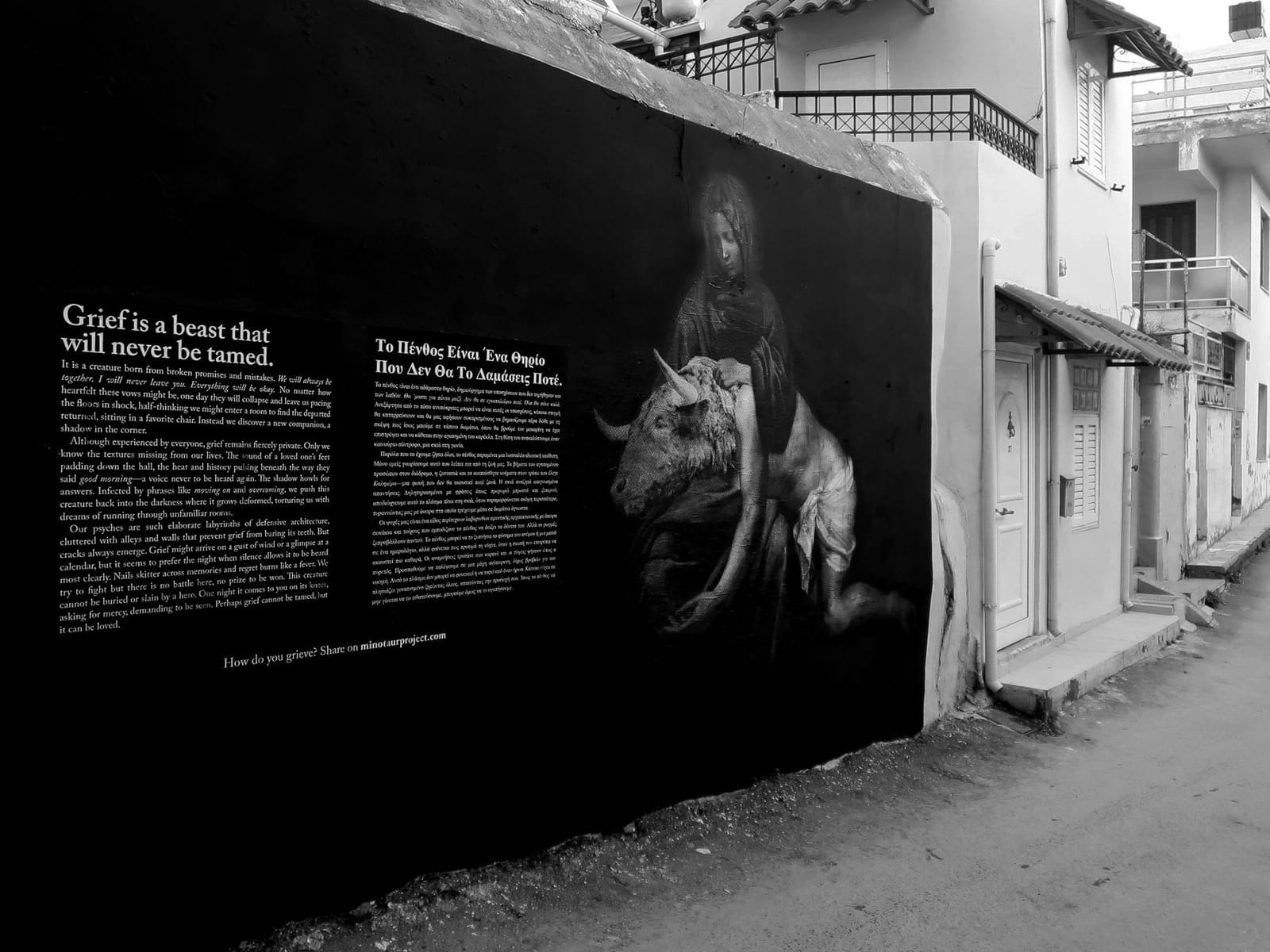Candy Chang and I recently collaborated on a mural in the Lakkos neighborhood of Heraklion, Greece. Grief Is a Beast That Will Never Be Tamed combines a short meditation on mourning with a retooled collage of the Pietà. The title came one morning while I wandered the strange region between wakefulness and sleep, surfacing from another dream of my parents, their faces before me and very much alive yet I could only say you’re not supposed to be here. I do not know how to grieve. Without faith in an otherworldly logic to the universe, two options present themselves: wallowing in pity and guilt, or moving forward with my chin up and the sensation that I’ve buried something.
One particularly hard day, I was wandering through the supermarket, lost in a dim memory of childhood shopping trips with my mom, remembering the way she held my hand as we scrolled down the aisles while I gazed up at the fluorescent lights, wondering if that was heaven. Now I was a confused adult, standing before a display of energy drinks while I watched the people flow past me—men and women in their thirties, forties, fifties, sixties—and the obvious finally occurred to me: Everyone here has lost somebody too. Or they will. We are all carrying the ghosts of parents, lovers, and even children. Why should I feel so alone? Perhaps this is why grief often feels indulgent, even shameful: if everybody else seems to be carrying on happily, why can’t I? As I passed through the sliding doors, the city’s billboards for widgets, entertainments, and endless youth felt particularly tone-deaf that night.
Six weeks later, Candy and I began spreading black paint across a wall in Greece. I had reservations about the project. Was the word ‘grief’ too obliterating? Was there anything to say about the subject? After we pasted up the text, an elderly woman stood before me with a passionate expression, her arms outstretched as she spoke to me in Greek. “She wants to know if you wrote the story on the wall,” someone explained. When I nodded, the woman clasped her hands together and her eyes went damp. The translator continued: “She says she just lost somebody too, and you describe her grief very well. She thanks you.” This moment made the project worthwhile.
The next day a woman with a stern ponytail told us the mural was horrible, that it was not art and, to be clear, she absolutely hated it. “Looking at this makes my heart black,” she shouted as she walked away. Part of me agrees with her, for I remain uncertain about whether a public conversation about grief can be constructive—or if it is too dark, a wall that forecloses discussion. But we have received several extraordinary responses from people who have lost fathers and godmothers, wives and sons. And I must remind myself that the only things worth making are the things which ask questions I cannot answer.





